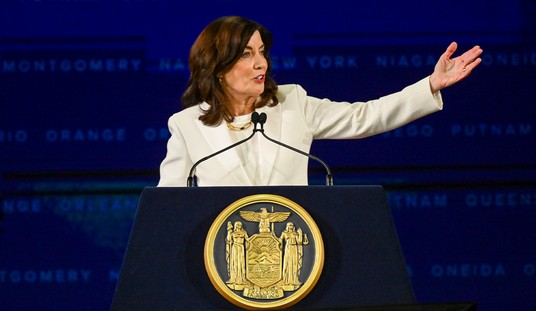President-elect Donald Trump is being faulted for supposedly appointing too many retired generals to Cabinet-level jobs and "militarizing" the government.
Former Lt. Gen. Michael Flynn is slated to be national security adviser. Retired Marine Gen. James Mattis has been nominated as defense secretary. Retired Marine Gen. John Kelly is Trump's nominee for secretary of homeland security. High-ranking officers such as Gen. David Petraeus and Adm. Michael Rogers have been rumored for other positions in the Trump administration.
All are retired as well as seasoned veterans. They have been previously entrusted with the lives of thousands of soldiers, and they have traveled around the world and met many of the key leaders in Asia, Europe and the Middle East.
Most of the criticism of the Flynn, Mattis and Kelly nominations is politically created hysteria, like past contrived bouts of partisan frenzy over subjects such as the "war on women" or the "climate of hate."
Why, after reaching a high military rank before retirement, should a nominee earn more scrutiny than an ex-banker, ex-politician or ex-lawyer?
Did anyone complain when Barack Obama appointed five retired generals and one retired admiral to either Cabinet posts or high-ranking positions in his administration? In fact, Flynn and Petraeus were first appointed to high office by Obama.
Under Obama, Petraeus became CIA director. Flynn served as Obama's director of the Defense Intelligence Agency. Retired Gen. Eric Shinseki was head of the Department of Veterans Affairs. Retired Gen. James Jones was national security adviser. Retired Adm. Dennis Blair and retired Gen. James Clapper served as successive directors of national intelligence.
Ronald Reagan also appointed a number of retired and acting generals to Cabinet positions or other high offices, including Al Haig as secretary of state, Colin Powell (while on active duty) as national security adviser, and Vernon Walters as ambassador to the United Nations.
Recommended
Retired generals and admirals as administration secretaries, officers, directors and advisers are nothing new. In the 20th century, most of the stars of the American effort in World War II later served in the executive branch.
President Harry Truman appointed Gen. George Marshall (of Marshall Plan fame) secretary of state and, later, secretary of defense. Gen. Omar Bradley was head of the Veterans Administration while still on active duty.
Dwight Eisenhower, without prior elected office, proved a most effective Republican president.
The chief complaint about Trump's appointments is that too many generals will mean too great a likelihood of war. Historical evidence points to the opposite conclusion. Generals were not the proverbial "best and brightest" who argued for military intervention in Vietnam, the invasion of Iraq in 2003, or the bombing of Libya in 2011.
In a famous example of a civilian-military paradox, President Bill Clinton's ambassador to the United Nations, Madeline Albright, scolded Chairman of the Joint Chiefs of Staff Colin Powell in 1993 for not being more eager to send troops into the Balkans. "What's the point of having this superb military that you're always talking about if we can't use it?" Albright asked Powell.
Traditionally, retired generals and flag officers have no desire to see their own troops killed in what they see as optional wars abroad. Their occasional harangues about building up military power are predicated on notions of peace-through-strength deterrence: The more powerful the military is perceived abroad, the less likely it will be need to be used.
Far more worrisome is the tired presidential custom of relying on ex-senators and politicians with law degrees to fill important executive positions despite their lack of outside-the-Beltway administrative experience.
In 2008, Obama's resume consisted mainly of having been a Harvard Law School grad and, briefly, a U.S. senator. No wonder he looked to people with similar backgrounds for some key appointments -- former senator and lawyer Joe Biden as vice president, former senator and lawyer Hillary Clinton as secretary of state, and later, former senator and lawyer John Kerry as secretary of state.
Yet the current state of affairs, from the collapse of several Middle Eastern nations to the failed reset with Russia to the outrageous Iran deal, is not exactly evidence of success at the State Department. An Obama appointee with a similar background, former senator and lawyer Ken Salazar, was not an especially successful secretary of the interior.
Lawyers, Ivy League graduates and former politicians usually dominate presidential appointments. How have these stereotypical profiles worked out?
We are currently nearing $20 trillion in national debt, stagnating under nonexistent economic growth and near-zero interest rates, and suffering from record labor nonparticipation rates. We are seeing a failed health care system, a discredited IRS and VA, and the worst racial relations in half a century.
Generals did not compile that record. Lawyers and lifetime Washington politicians did.

























Join the conversation as a VIP Member